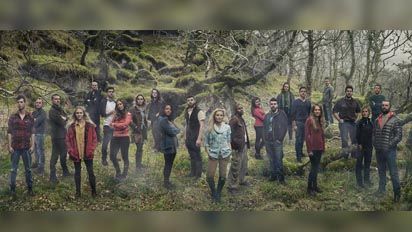Eden: Paradise Lost
We saw a society without God disintegrate in Channel 4's reality show Eden. It reinforced the need for the church to tackle injustice, rather than collude in it, writes Michael Shaw
 I have finally managed to catch up with Channel 4’s “lost” reality programme Eden. It was first shown in 2016 and was a year long experiment to see how 23 people, stranded without electricity, the internet or modern luxuries, would cope.
I have finally managed to catch up with Channel 4’s “lost” reality programme Eden. It was first shown in 2016 and was a year long experiment to see how 23 people, stranded without electricity, the internet or modern luxuries, would cope.
It was called the "lost reality program' because it was supposed to be shown sporadically throughout 2016 and early 2017, but after four episodes it disappeared from our screens. Some have suggested it was a rapid decline in viewing figures, but the final series, shown a few weeks back, probably revealed a more sinister reason.
As the year went on the group, which was supposed to be building a new community, became more fractious and divided. Worse still the group, made up predominantly of under 40s, marginalised, scapegoated, and isolated people. They became sexist and homophobic (and even picked on vegetarians!).
One group, a bunch of men in their 20s and 30s called the "Valley Boys", lived for a while on a meat only diet, killing all and any animals they found, and their lust for blood became insatiable (after leaving one of the guys became a vegetarian).
These were all people who live today’s values, but as their society collapsed their values collapsed. I'd suggest this happened because they had no God. They were godless: while there were artists, shepherds and hunters in their community, there were no religious or spiritual leaders (there was a yoga instructor but she left very early on).
Some have said their descent was due to a Lord of the Flies effect, but I would argue that their value system without God was not robust enough, and quickly values of equality for all disintegrated.
That being said, it was not as though there was no religious imagery: the series was called “Eden”, "the Valley Boys" home, once it was full of rotten carcasses, was called Hell and when one group was booted out they were “scapegoated”. So there was subliminal imagery that kept popping up, but it was mostly a godless place.
The problem, of course, is that marginalisation, sexism and homophobia are not unknown in the church. We are not immune from it, and too often we have been not just a catalyst, but an agitator for such things. So outside commentators can quite rightly say that a faith element would not necessarily have stopped the descent.
But while the church has made mistakes, more often we have got things right than wrong. When we have made mistakes, like participation in the trans-Atlantic slave trade, we worked to make things right by being leaders in its abolition.
So how can we be leaders today? How can we be leaders in seeing Galatians 3:28 – all are one in Christ – be a present narrative of the church?
Or are we, like the Valley Boys in Eden, going to fall into the easy path of accepting and participating in inequality rather than choosing to fight it?
The Revd Michael Shaw is minister of Devonport Community Baptist Church, Plymouth
Baptist Times, 01/09/2017